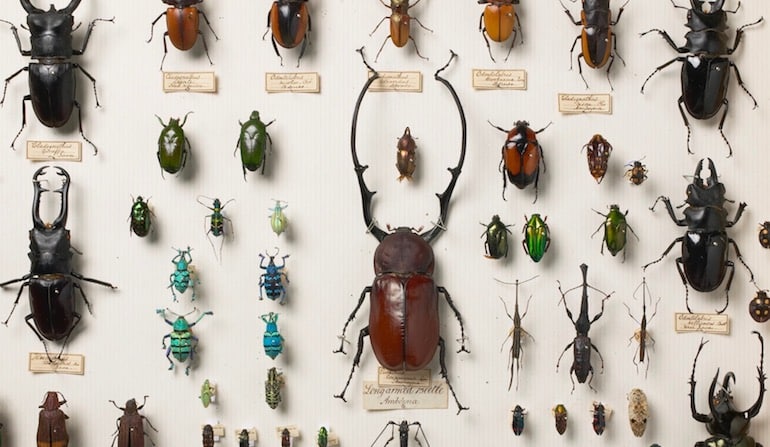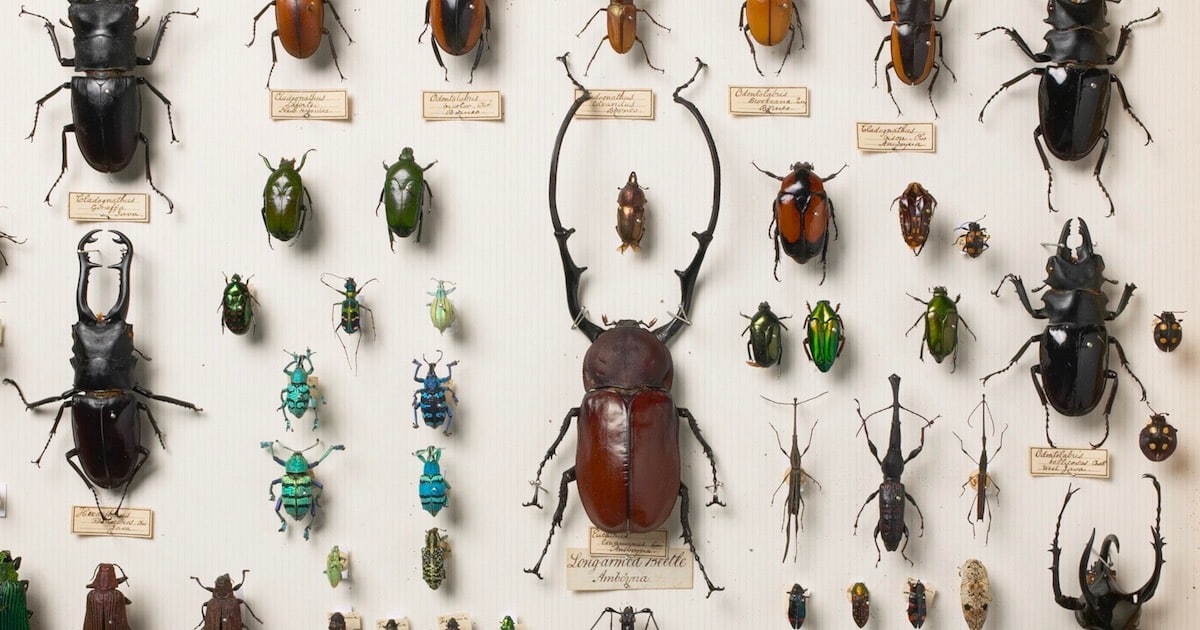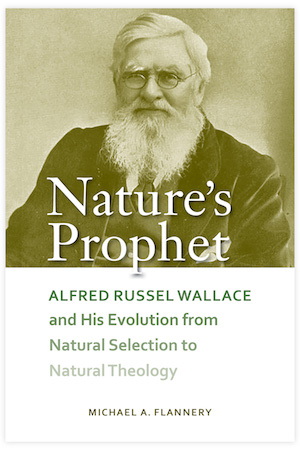 Evolution
Evolution
 Faith & Science
Faith & Science
Wallace’s Frenemies: A Lesson from Phillip Johnson


In a post yesterday I replied to Harvard evolutionary biologist Andrew Berry’s bumbling review of my book Nature’s Prophet. It was written as an antidote to people precisely like Berry who selectively praise Wallace when he’s engaged in science talk, but are quick to brand him a fool when he expresses any of his metaphysical views. Wallace’s historiography is festooned with such frenemies, Berry among them (more are mentioned in the book).
This is all the more unfortunate because Wallace himself devoted the last half of his life to things these frenemies so adamantly oppose. Nature’s Prophet allows the whole Wallace to speak, and speak proudly and unapologetically. While I stated my case on most points, one more seems so surprising that it deserves special comment. Toward the end of his review Berry quotes me as referring to Wallace as constructing “a human-centered cosmology that resonates with much of scripture.” He then somewhat astonishingly says, “What is the relevance of this?”
Man’s Place in the Cosmos

Now if he had been paying attention he would have noted that I had already laid out the fact that Wallace’s Man’s Place in the Universe (1903) was to highlight the significance of man in the cosmos, not to mention his grand statement of natural theology, The World of Life, that ends with his assertion that man is “already ‘a little lower than the angels,’ and, like them, destined to a permanent progressive existence in a World of Spirit.”
That quotation comes from Psalm 8, and other passages reflect Wallace’s natural theology as well: Matthew 6:26; Romans 1:20, 1 Corinthians 15:39, to name a few. In fact, it is fair to say that Wallace constructed a natural theology that resonated with all the Abrahamic religions. Wallace, therefore, distinguished himself from those like Haeckel who saw humankind as a mere by-product of blind natural forces. Again, I never suggested that Wallace was referencing the Bible per se (although his closing line quoted above clearly does) or that he was even remotely expositing on Genesis or any other biblical text, only that Wallace opposed Paley’s brand of special creation. He was not opposed to the grander and more magisterial sense of general creation often revealed in scripture. Haeckel’s cosmology is diametrically opposed to a human-centered universe, preferring one that reduces humanity to nothing more than co-equal artifacts of a blind physical world.
Borrowed from Darwin
Haeckel’s idea was borrowed from Darwin. And where did Darwin get this diminution of humankind? It had nothing to do with science; it goes back to his association with the radical freethinking Plinian Society that he joined as a teenager in Edinburgh. On March 27, 1827, Darwin, just barely turned 18, heard a fellow Plinian, William Browne, give a lecture on human consciousness and the mind as merely the product of brain activity. This only added fuel to William Greg’s earlier inflammatory presentation to the society, setting out to prove that “the lower animals possess every faculty & propensity of the human mind.”
Thus, by the time Darwin was working on Notebook C in 1838, he was well schooled in materialist thought. So sometime between mid-May and mid-June Darwin writes: “Why is thought being a secretion of the brain, more wonderful than gravity a property of matter? It is our arrogance, it is our admiration of ourselves.” Then a little later he adds, “Man in his arrogance thinks himself a great work worthy the interposition of a deity, more humble & I believe true to consider him created from animals.”
“Stubborn Modesty”
But Darwin had it all wrong. The insightful historian John Lukacs, taking his cue from what his friend and colleague Jacques Barzun called Darwin’s “stubborn modesty,” replied:
We must recognize, contrary to all accepted ideas that we and our earth are at the center of our universe. We did not create the universe, but the universe is our invention, and it is, as are all human and mental inventions, time-bound, relative, and potentially fallible. Because of this recognition of the human limitations of theories, indeed, of knowledge, this assertion of our centrality — in other words, of a new, rather than renewed, anthropocentric and geocentric view of the universe — is not arrogant or stupid. To the contrary: it is anxious and modest. . . . No. The known and visible and measurable conditions of the universe [its material aspects] are not anterior but consequent to our existence and to our consciousness. The universe is such as it is because in the center of it there exist conscious and participant human beings who can see it, explore it, study it. (For those readers who believe in God: the world and this earth were created by Him for the existence and consciousness of human beings.) This insistence on the centrality and uniqueness of human beings is a statement not of arrogance but of humility. It is yet another recognition of the inevitable limitations of mankind. [See The American Scholar.]
Missing the Point
So when I referred to Wallace’s human-centered universe that resonated with scripture I was juxtaposing it with Darwin’s and Haeckel’s reductionist materialism, and nothing could be more relevant than that. The fact that Berry can’t see it means he missed the point of Nature’s Prophet entirely.
So I was left puzzled by Berry’s comment. I thought perhaps he didn’t read the book completely. Maybe he just skimmed it and cherry-picked for items of criticism. Then I realized the truth of something Phillip Johnson had said in The Wedge of Truth:
I have had many conversations with leading scientists, journalists and other intellectuals who are committed to evolutionary naturalism, as well as with theological modernists who express fundamentally naturalistic ideas in theistic language. When I refuse to accept naturalistic assumptions some are overtly hostile, some are patronizing, and some try their best to be polite. All are uncomprehending. To them naturalism and science are virtually the same thing, and they think that to depart from science is to depart from reason.
A Fatal Error
Berry’s response was, therefore, predictably patronizingly hostile. Now I know why. Berry couldn’t see the relevance of my statement — and indeed much of the book — because he simply failed to comprehend it through the lens of his naturalistic worldview. Moreover, he can’t see through his own philosophical commitments and instead in blissful confidence conflates naturalism, science, and reason. This is fatal to anyone who would understand and appreciate a considerable body of Wallace’s work: Darwinism (1889), Man’s Place in the Universe (1903), The World of Life (1910), and Social Environment and Moral Progress (1913). In some ways, for all of his claims to academic competence in evolutionary biology in general and Alfred Russel Wallace in particular, Berry came incredibly ill-equipped to review Nature’s Prophet because he was essentially deaf, dumb, and blind to its message.
So we can add Berry to the list of Wallace frenemies quick to praise him on certain matters but equally quick to condemn him on others. That Berry could quote from George Romanes as branding Wallace’s “teleological thinking” as one of “incapacity and absurdity” shows how little we have advanced in the big picture discussion of the nature of life and humanity’s place in it. Sadly, with few exceptions, most Wallace “scholars” (Berry among them) don’t appreciate the entire man, and they never will.
Photo credit: “Beetles collected in the Malay Archipelago by Alfred Russel Wallace” (cropped), ©Natural History Museum, London, via Flickr.
